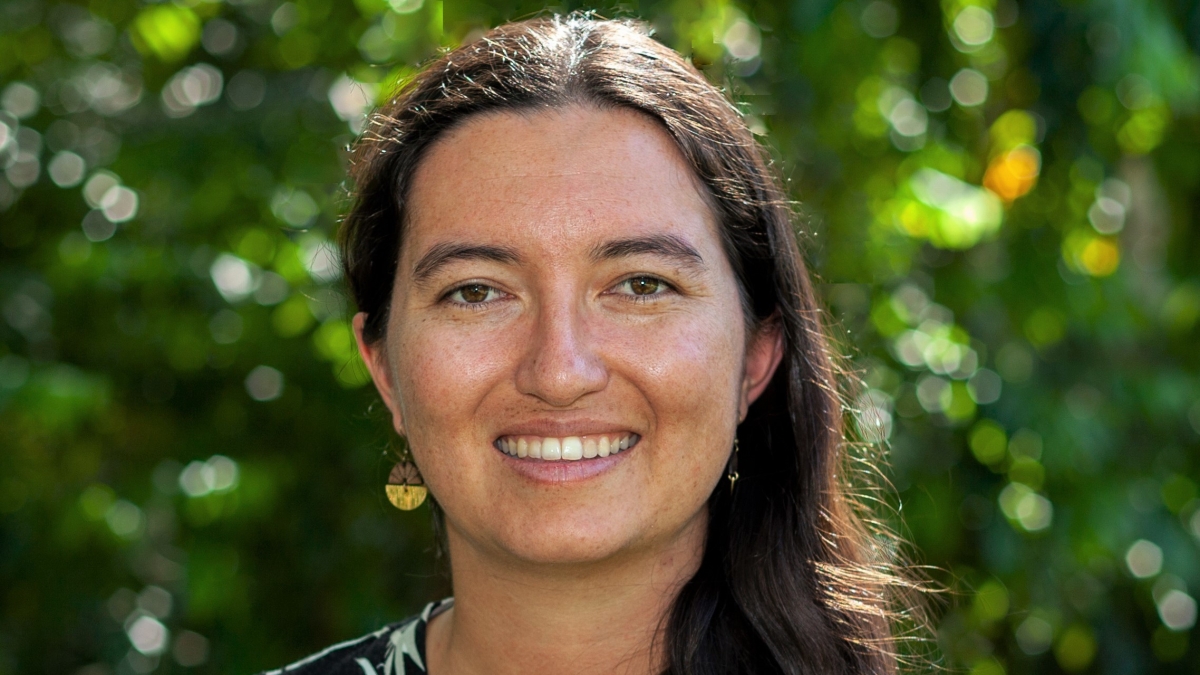ASU researcher receives prestigious Smith Fellowship for local conservation work

Amber Datta
Kuleana is a Hawaiian concept that emphasizes responsibility and reciprocity in the relationship between humans and the natural world. Give back to the land you inhabit and, in turn, the land will provide for you.
For Amber Datta, her sense of kuleana inspired her to return to the state she grew up in, Hawaii, for her postdoctoral work. Thanks to support from the Society for Conservation Biology and the Cedar Tree Foundation through the prestigious David H. Smith Conservation Research Fellowship, Datta is able to conduct research for a project titled “Pathways to power: Supporting Indigenous peoples and local communities to achieve local and global conservation goals.”
Datta’s work falls within the newly established School of Ocean Futures, embedded in Arizona State University’s College of Global Futures. She will also be working closely with her mentor Jack Kittinger, an ASU research professor and Affiliate Global Futures Scholar in the Julie Ann Wrigley Global Futures Laboratory who also serves as vice president of global fisheries and aquaculture in Conservation International’s Center for Oceans. The two initially met at the World Conservation Congress conference in 2016, and Datta has been following Kittinger’s work since.
Datta’s work seeks to develop governance processes and policies to support local communities and Indigenous groups that are seeking co-management arrangements with state governments to further their conservation efforts. According to Datta, the people who actively live in any given place are the ones best placed to take care of the land, but supporting local management statewide requires resources and coordination.
“Conservation is about people as much as it is about nature,” Datta said. “This project will move local involvement forward as environmental preservation becomes even more critical.”
Drawing on her background studying adaptive governance and the impacts of mass coral bleaching on the governance of coral reefs, Datta well understands the importance of resilience in the face of a rapidly changing environment. She plans to work with government and community leaders to develop new policy options before partnering with two or three that are ready for a change and interested in implementing these options.
“Community self-determination is key here, ensuring that those experiencing the impacts of climate change, poor water quality and other human impacts on reefs have a say in how mitigation and adaptation efforts are carried out,” Datta said
Testing these strategies out in practical environments with partner communities will help create a framework. The co-management strategies developed in Hawaii can expand into other U.S. states and other nations. Datta plans to follow her research with workshops that engage communities and partner organizations to determine the best ways to translate policy options for use in other places where communities are pursuing co-management.
”My goal is for the results of this research project to fill critical knowledge gaps that prevent the implementation of co-management, creating pathways for the self-determination of local and Indigenous communities in stewarding the environment,” said Datta. “Growing up in Hawaii, I was inspired by the leaders in my community to care for the land we lived on. This work should honor that endeavor.”
Kittinger, her ASU mentor, said the academic community researching these innovative policy pathways is quite small, but filled with people who are passionate about their work with communities: They tend to view their work as more of a calling than simply a profession. He also recognized the timeliness of the project.
“We are really in the age of adaptation, no denying that now. Mitigation is not enough on its own; the impacts (of climate change) on communities are escalating, and practitioners need real-world solutions,” he said.
The Smith Fellowship is a competitive postdoctoral program for researchers working within conservation science. Program participants are tackling complex conservation challenges and developing new, practical solutions.
“I know what problems I want to work on in my career. It’s just about finding opportunities to work on these problems. The Smith (Fellowship) is a great chance to do that,” she said.
Her research project is also made possible through partnerships with Conservation International, the Hawaii Department of Land and Natural Resources and the grassroots community organization Kua'āina Ulu 'Auamo (KUA).
More Environment and sustainability

A 6-month road repair that only takes 10 days, at a fraction of the cost? It's reality, thanks to ASU concrete research
While Arizona’s infrastructure may be younger than its East Coast counterparts, the effects of aging in a desert climate have…

Mapping DNA of over 1 million species could lead to new medicines, other solutions to human problems
Valuable secrets await discovery in the DNA of Earth’s millions of species, most of them only sketchily understood. Waiting to be…

From road coatings to a sweating manikin, these ASU research projects are helping Arizonans keep their cool
The heat isn’t going away. And neither are sprawling desert cities like the metro Phoenix area.With new summer records being set…

